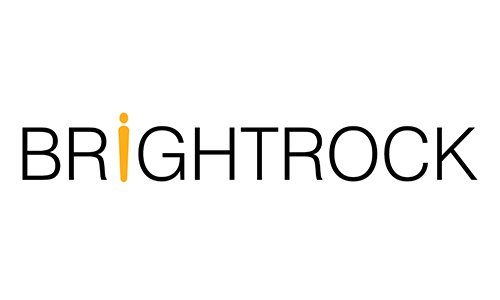
Estate Executor
Life Cover Provision for your spouse and children when you die
Life Cover Provision for your spouse and children when you die
- Estate Planning Life cover
- Estate Provider Benefit Life Cover
- Calculation of Estate duty
- Personal Planning of Estate Provider
- Last Survivor Death benefit (to cover estate duty)
ESTATE PLANNING
Creating a comprehensive estate plan to deal with your assets and provide for your loved ones after your death is an important financial duty.
You owe it to yourself and your family to plan ahead. Not only for the distribution of your assets upon your death. Creating an Estate Plan is an important responsibility and yet too many South Africans – 70% of the working population – do not have a Will in place. The reality is that anything can happen and it’s important to be prepared.
If you plan your estate and how your assets will be distributed once you pass away. You’re taking significant steps toward securing the financial future of the people that matter most to you in life.
- Planning your estate refers to crafting the documents and processes to be followed upon your death to ensure your loved ones are taken care of.
- Financial planning experts agree that estate planning is crucial if you are married, have been married multiple times, have children from different relationships or support people financially. It will allow the protection of your loved ones from legal hassles and financial uncertainty after your death.
- By planning your estate, you’re carefully structuring your finances and assets. In a way that ensures estate duties are minimised, that there is sufficient liquidity to meet your estate's financial obligations upon your death. Ultimately that any inheritances are sufficiently distributed or protected for your younger beneficiaries.
-
It’s generally misconceived that estate planning is simply about ‘making a
Will
’. A Will is only one component of a comprehensive estate plan. Matters such as your marriage contract/s, capital gains tax (CGT) and any income taxes you owe to SARS must be considered in your estate plan to ensure that the process of winding up the estate is smooth...
Estate Provider Benefit | Life Cover
Estate Provider Benefit (EPB) in a nutshell
One of the main features of the EPB is to provide the necessary funds required to settle professional fees that arise during the administration of a deceased estate. Such as executor fees, conveyancing fees, motor vehicle transfer costs, trust costs as well as fees relating to the Master of the High Court.
Costs associated with firearms and how this is dealt with in the deceased estate. Supplementary to the above, the EPB covers 100% of the executor fees that arise during the administration of the deceased estate for estates below the gross value of R10 million. If the gross value of the estate is above R10 million Momentum Trust guarantees a 50% discount of executor fees off the amount over R10 million.
Any residual of the benefit lump sum amount that is paid directly to Momentum
Trust, at claim stage, which is available in surplus after the finalisation of the deceased estate will be paid back to the deceased estate account. This allows the executor to distribute these funds to the testamentary heirs. An additional benefit of the EPB is that the executor fees are waived on the benefit lump sum and is thus excluded from the gross estate value which is unlike any other product in the market.
Another favourable aspect of the EPB is that the instant cash lump sum to the maximum of R 50 000. Payable to the nominated beneficiary, will not be aggregated with any other instant cash payable by additional Myriad Death Benefits. This means that the total instant cash benefit to a maximum of R100 000 is payable when a client has an EPB in addition to a Myriad Death Benefit. The EPB enables financial advisers and clients to have wills drafted by highly educated and experienced will drafters in which the will may be amended and reviewed from time to time without incurring any additional costs. The signed will is then collected and held in safe- custody at Momentum Trust in a secure and safe holding facility without any additional safe custody fees chargeable.
A very significant aspect of this benefit is the aggregated buying power that Momentum Trust, as a service provider offers by ensuring favourable and affordable rates for services associated with the administration of the deceased estate including but not limited to, litigation services, auditing services as well as trust services to name a few.
The EPB notably alleviates the challenges associated with deceased estates with estate values that are below R250 000. In such cases, a qualified and experienced executor does not administer the estate. This duty is left to another representative as appointed by the Master of the High Court.
This benefit gives you peace of mind knowing that your
will is safe, that there will be enough money available in your estate to cover administration costs, and that any amount not used will boost your estate because it will be paid back.
CALCULATION OF ESTATE DUTY
Estate duty refers to a tax of 20% that is levied on the estate of a deceased person in accordance with the provision of the Estate Duty Act (the “Act”). Estate duty is levied on the dutiable portion of the deceased estate. The Act lists the assets that will attract estate duty and therefore must form part of the dutiable estate.
Those assets which are excluded from the estate for the purposes of calculating estate duty. This legal update will focus on whether approved and unapproved death benefits form part of the estate of a deceased member for the purposes of calculating estate duty.
WHAT CONSTITUTES AN “ESTATE” FOR THE PURPOSES OF CALCULATING ESTATE DUTY?
In terms of the Act, all property belonging to a person at the date of his death, together with all property deemed to belong to that person as at the date of his death, forms part of his estate for the purposes of calculating estate duty.
- Deemed property is any benefit received because of the death of the deceased. Domestic policies on the life of the deceased are deemed to be the property of the deceased. This forms part of the deceased estate for the purposes of estate duty.
- Estate duty is payable on the estate of every person who dies and whose net estate is more than R3.5 million.
- Net estate refers to the amount that remains after deducting all allowable deductions and an amount of R3.5 million
LAST SURVIVOR DEATH BENEFIT, LIFE COVER
Estate duty: Estate duty is generally only payable on the death of the second insured life. This benefit provides funds to cover estate expenses and to help avoid the need to sell assets. And or borrow money to cover such expenses.
The Last Survivor Death Benefit may be used to cover similar needs as that of the Death Benefit.
The need, however, will arise on the death of the second insured life:
— Financial security: Provides funds that may be used to ensure that the current standard of living of the beneficiaries of the policyholder can be maintained.
— Debt protection: Provides funds that may be used to help pay off mortgages and other outstanding debts.
— Education funding: Provides funds that may be used to fund the education of children.








